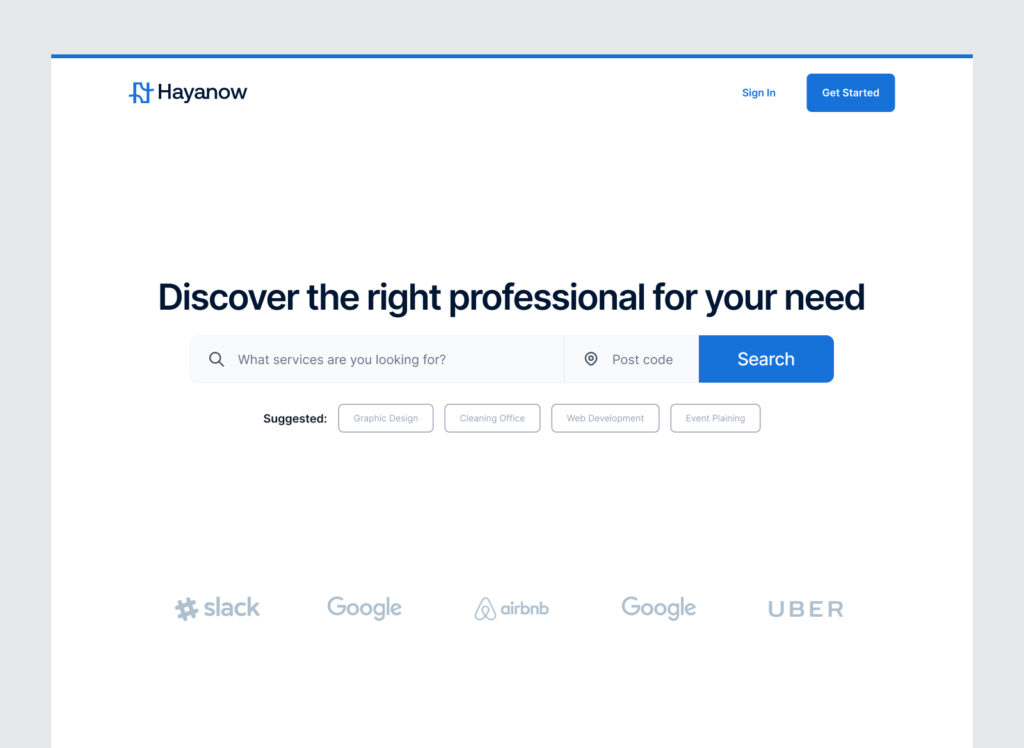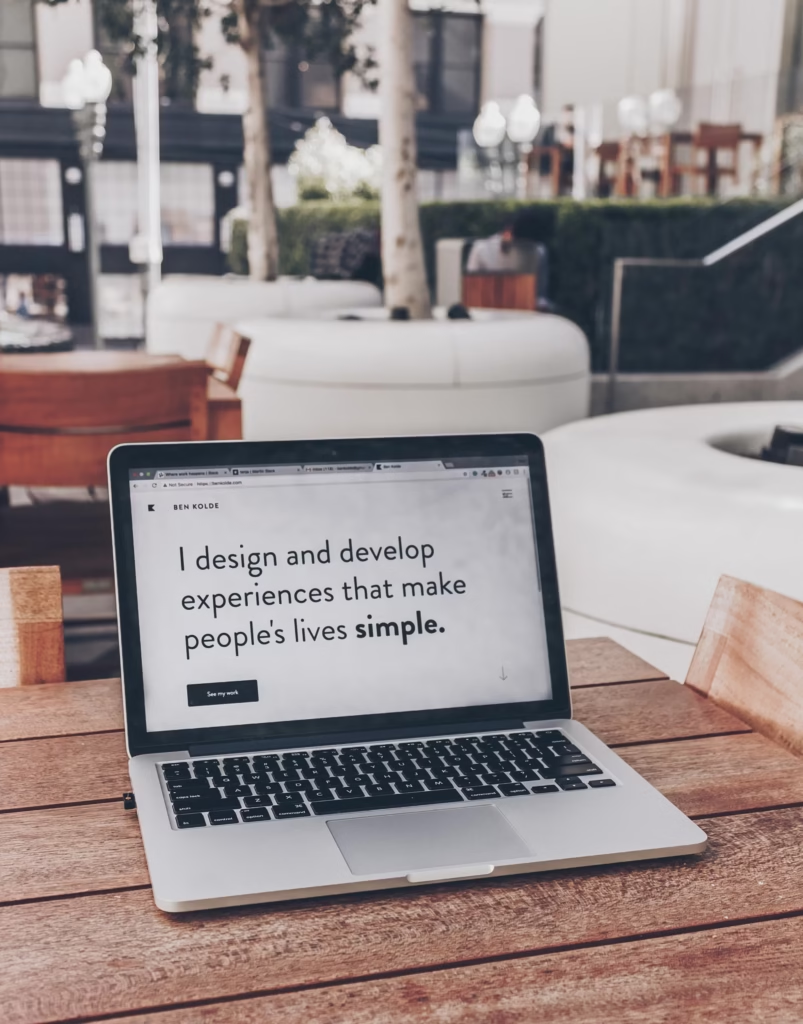Hiring the right website designer is a pivotal decision for your online presence. Whether you’re planning to launch a personal blog, an online store, or a large-scale business website, having the right professional to design your site can set you on the path to success. This guide will walk you through the essential steps to help you find a website designer in the UK who meets your needs and delivers outstanding results.
10 Essential Tips to Hire a Website Designer in the UK
1. Understand Your Website Needs
Before you begin searching for a web designer in the UK, it’s important to assess your own needs. Take time to define the specific goals for your website. Consider:
- Type of Website: Is it an e-commerce site, a portfolio, a blog, or a business website?
- Features: Do you need a blog, a shopping cart, booking functionality, or custom web applications?
- Target Audience: What kind of user experience are you aiming to provide for your visitors?
Understanding your needs will help you find a designer with the right expertise, whether it’s design, development, or SEO.
2. Research and Shortlist Potential Designers
Now that you know what you’re looking for, it’s time to explore options. There are a variety of platforms where you can hire a website designer in the UK, each offering different types of services and professionals. Here’s how to find designers that match your criteria:
- Freelance Platforms: Websites like hayanow allow you to hire individual designers. You can explore portfolios, compare prices, and check client reviews to find the right freelancer for your project.
- Web Design Agencies: If you’re looking for a full-service solution, web design agencies can provide a team of professionals who manage everything from design and development to SEO and content management.
- Trusted Platforms like HayaNow: If you want an easy way to find top-tier web designers in the UK, consider using HayaNow. We connect service seekers with trusted professionals, making it easier to find qualified web designers that fit your project scope and budget.
By browsing various platforms, you can build a shortlist of potential candidates who align with your project needs.
3. Check Their Portfolio and Past Work
When evaluating designers, their portfolio should be one of your top priorities. A strong portfolio demonstrates the designer’s skills, creativity, and experience in delivering quality websites. Look for:
- Design Style: Does their design style align with your vision for the site? Is it modern, clean, and professional?
- Versatility: Does their portfolio show a range of different types of websites (e.g., e-commerce, business sites, blogs)?
- Functionality: Pay attention to how well the websites work. Are they responsive, easy to navigate, and free of bugs?
A well-rounded portfolio will show the designer’s ability to adapt to various client needs and ensure a seamless user experience.
4. Evaluate Their Technical Expertise
A good website designer should also possess solid technical skills. Here are some key technical aspects to consider when hiring a website designer in the UK:
- Responsive Design: Your website must look and function well on any device, from smartphones to desktops. Ensure the designer has experience with responsive web design.
- SEO Knowledge: A website is only valuable if people can find it. A designer who understands SEO best practices can help optimize your site for search engines, improving its visibility.
- CMS Knowledge: Depending on your needs, your designer should be proficient in platforms like WordPress, Shopify, or Wix. Make sure they’re comfortable working with the content management system you prefer.
- Web Development Skills: In addition to design, some website designers are also proficient in web development. This includes knowledge of HTML, CSS, JavaScript, and even custom backend coding, depending on the complexity of your site.
Assessing these technical skills ensures that your designer can create a site that is not only visually appealing but also functional and optimized for performance.
5. Understand Their Design Process
A well-defined process is crucial for a successful web design project. Here’s what you should expect from a professional designer:
- Initial Consultation: A good designer should want to understand your goals, target audience, and brand identity before starting the design process.
- Design Mockups: Designers typically provide initial wireframes or mockups to give you an idea of the site’s layout and design.
- Revisions: Ask how many revisions are included in the project. Designers should be open to feedback and willing to make changes to ensure the final product meets your needs.
- Development: Once the design is approved, the designer should proceed with development, integrating functionality and content.
- Testing and Launch: Ensure the designer includes time for testing the website across devices and browsers to guarantee compatibility.
By understanding the designer’s process, you can ensure they align with your expectations and deadlines.
6. Communication and Collaboration
Effective communication is essential for a successful project. When working with a website designer in the UK, ensure they’re easy to reach, responsive, and open to collaboration. They should be able to:
- Explain their design decisions clearly.
- Provide regular updates on the project’s progress.
- Listen to your feedback and incorporate it into the design.
Good communication reduces misunderstandings and ensures the project stays on track.
7. Discuss Pricing and Payment Structure
Website design costs can vary based on the complexity of the project, the designer’s experience, and the level of service required. Here’s what you need to consider when discussing pricing:
- Freelancers: Freelance designers typically charge between £30 and £100 per hour, depending on their experience and skill level.
- Agencies: Web design agencies often have higher rates, but they provide a team of professionals who can handle various aspects of the project. Agency pricing might range from £1,000 to £10,000+ for a full website, depending on the scope.
- Fixed vs. Hourly Pricing: Some designers offer fixed-price packages for standard projects, while others work on an hourly basis. Make sure you agree on pricing upfront.
Platforms like HayaNow offer a range of pricing options, allowing you to select a designer who fits within your budget.
8. Read Reviews and Check References
Don’t forget to check reviews and ask for references from previous clients. A designer with a good reputation will have positive feedback and a history of successful projects. Read reviews on:
- Freelance platforms: Hayanow provides ratings and client reviews.
- Website: Some designers showcase client testimonials on their own website.
- Social Media: Check the designer’s LinkedIn or other social media profiles for feedback from past clients.
References and reviews provide valuable insight into the designer’s reliability, professionalism, and skill.
9. Ensure Compatibility with Your Brand
Your website should reflect your brand’s identity. When evaluating a designer, ensure they understand your brand’s voice, values, and goals. They should be able to:
- Incorporate your brand colors, logo, and style.
- Design with your target audience in mind.
- Suggest design elements that resonate with your brand’s mission.
Compatibility between your brand and the designer’s work ensures the website aligns with your overall business goals.
10. Review the Contract and Agreement
Before starting work, ensure you have a formal agreement in place. The contract should outline:
- Scope of Work: Clearly define what the designer will deliver, including design mockups, development, and post-launch support.
- Timeline: Set clear deadlines for each phase of the project.
- Payment Terms: Agree on payment schedules, including deposits and final payments.
- Intellectual Property: Clarify who owns the design and any content after the project is completed.
A well-drafted contract protects both you and the designer, ensuring clear expectations and a smooth working relationship.
Final Thoughts: Finding the Perfect Website Designer

One of the easiest ways to find a website designer in the UK is by using a trusted platform like HayaNow. These platforms streamline the process, allowing you to connect with qualified professionals who meet your specific needs. Here’s why HayaNow is a great option:
- Access to Verified Professionals: HayaNow connects you with trusted website designers in the UK who have been vetted for their skills and reliability.
- Easy Comparison: You can compare multiple designers in terms of their portfolios, expertise, and rates, making it easier to choose the right one for your project.
- Convenience: The platform simplifies communication, contracts, and payments, making the process smooth and hassle-free.
- Tailored Search: With advanced search options, you can filter designers based on your specific requirements, such as industry expertise, design style, or experience with specific web technologies.
Using HayaNow gives you peace of mind that you’re hiring a professional who will deliver high-quality work, all while streamlining the hiring process.
Hiring a website designer in the UK can be a smooth and successful process if you take the right steps. By following these 10 essential steps, you can find a designer who meets your needs and creates a website that drives business growth. Platforms like HayaNow can help you easily connect with skilled professionals, ensuring you find the right match for your project. Whether you’re looking for a freelancer or an agency, the right designer will help you achieve a website that is visually stunning, functional, and aligned with your brand.



